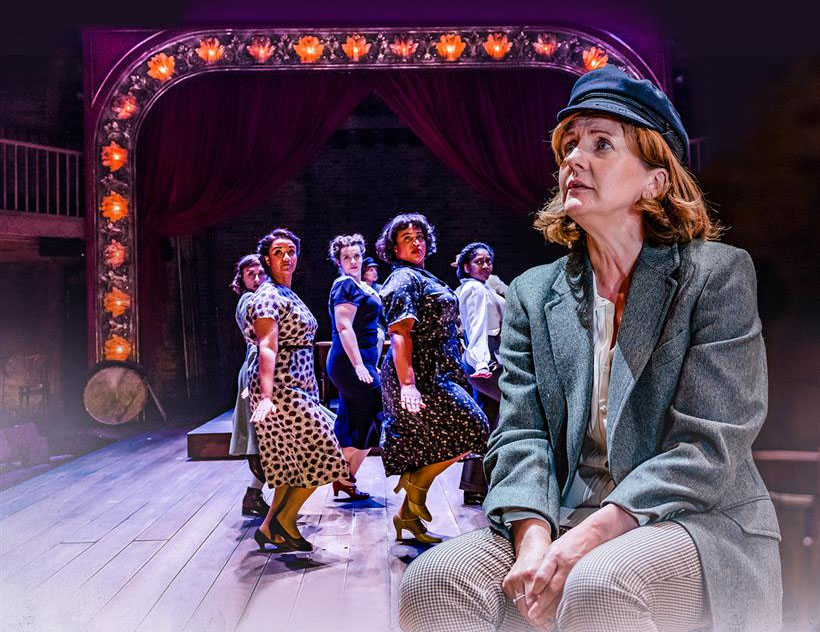
The soccer stimulus over, the BREXIT debate rumbling eternally on: I’d love to distil a little feel-bad atmosphere with another rapturous review of Sam Kenyon’s musical about titan of theatre, director Joan Littlewood. Sadly – and it’s hard to take a minority view, it left me more exasperated than enlightened.
Directed by Erica Whyman it is paved with good intentions, and certainly old fashioned story-telling would not do for The Mother of Modern Theatre. We get not one, but seven actors playing the title role and an unrelenting torrent of energy, mostly directed at Kenyon’s songs.
‘Worth a try,’ Littlewood might have said if consulted in the great theatre in the sky. And her revolutionary ideas and uncompromising life call out for dramatisation. Born illegitimate to a teenage housemaid in south London in 1914, she entered RADA on a scholarship but, rejecting its class-ridden conformity, left for Manchester, a left wing theatre company and subsequently a fifteen year marriage to its founder, Jimmie Miller – AKA as the folk singer Ewan MacColl.
After WWII, dedicated to improving the lot of the underprivileged, they formed Theatre Workshop, a touring company which found a dilapidated home in Stratford East London in 1953. Against cosy naturalism, using imagination, movement and music in place of money, they reinterpreted classic plays, introduced new work with The Hostage, A Taste of Honey and Oh! What a Lovely War, and earned the potentially poisoned chalice of international acclaim.
The opening burst into life as Joan’s father (Greg Barnett) accused an audience member of being the non-contributing begetter of his granddaughter. She – it was a women – gamely answered from a script under her seat, and all was amicably arranged. Young ‘Dad’ would pay 30p a week plus a tray of Williams pears each birthday until Joan was sixteen. Into an effective song, Joan All Alone, and so far so witty and entertaining.
Dialogue sections are largely short and succinct with humour based upon Joan’s imperious personality – bullying for a cause. Kenyon entrusts much of the story and underlying emotion to his many, many songs, and with a few exceptions they are too flimsy and incoherent to run with it. Jokes about the desperate struggles of principled theatre, become increasingly desperate.
As the mature Joan, directing all the others in her biography, Clare Burt excels, delivering a cynical commentary with the poise of embattled experience. Her final song, however, the show’s denouement after the death of Joan’s long term partner Gerry Raffles, needs to a be a sort of Send in the Clowns for a socialist romantic. Its failure, not Burt’s – who tries to give it everything it hasn’t got, leaves a huge emotional hole.
The cast just like Littlewood’s dedicated band of theatrical zealots, give it their energetic all with much multi-role playing, singing, dancing and storytelling. Amongst them are Joans: Emily Johnstone, Aretha Ayeh,,Sophia Nomvete, Sandy Foster, Amanda Hadingue and Dawn Hope.
Hadingue also scores as the predatory lesbian art teacher who takes Joan to Paris, whilst Johnstone, brassy and brazen fulfils the script, if not the actuality of the young Barbara Windsor. Joans rather push the men into the background, but Greg Barnett gives Ewan McColl some narcissistic interest, and as Raffles, Littlewood’s commercial genius and ever straying lover. Solomon Israel adds solid charm. ★★★☆☆ Derek Briggs 19th July

